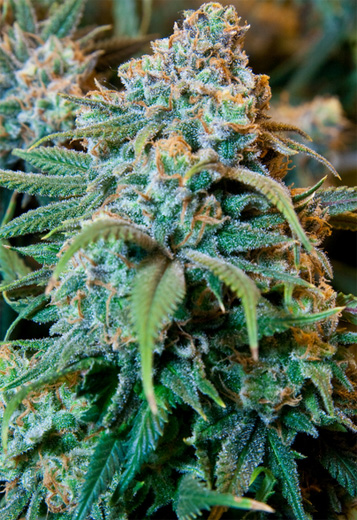Judge Clears Legal Web For Florida Medical Marijuana By Year’s End
May 28, 2015
Patients could have access to long-awaited, non-euphoric pot products by the end of the year, after a judge on Wednesday rejected a challenge to a proposed rule setting up the medical marijuana industry in Florida.
Department of Health officials could begin processing applications for the low-THC cannabis within 41 days of Wednesday’s decision by Administrative Law Judge W. David Watkins, according to an agency spokeswoman.
Watkins pointedly began his 68-page ruling with an excerpt from “Charlotte’s Web,” by E.B. White.
“Life is always a rich and steady time when you are waiting for something to happen or hatch,” Watkins quoted from the children’s book.
 The name “Charlotte’s Web,” a type of cannabis cultivated in Colorado, has become nearly synonymous with marijuana that is low in euphoria-inducing tetrahydrocannabinol, or THC, and high in cannabadiol, or CBD.
The name “Charlotte’s Web,” a type of cannabis cultivated in Colorado, has become nearly synonymous with marijuana that is low in euphoria-inducing tetrahydrocannabinol, or THC, and high in cannabadiol, or CBD.
Parents of children with a severe form of epilepsy pushed the Legislature last year to approve the low-THC cannabis, believing it can end or dramatically reduce life-threatening seizures.
But their joy over the passage the law, and Gov. Rick Scott’s support of it, ceded to frustration as delays — including Watkins’ November invalidation of health officials’ initial attempt at a rule — kept pot operators from getting started. Regulations for the industry were supposed to go into effect on Jan. 1.
“We don’t know whether to laugh, cry, dance, or do back flips,” said Ryan Wiggins, spokeswoman for Payton and Holley Moseley, who advocated for the law on behalf of their daughter RayAnn. “There were times over the past year we truly didn’t believe this day would ever come. We are grateful to DOH and their attorneys for all of the work they have put in to getting this right. Today is an outstanding day for Florida’s families who battle epilepsy.”
Under Florida’s first-in-the-nation low-THC law, health officials will select five nurseries in different regions of the state to cultivate, process and distribute the non-euphoric cannabis to patients with epilepsy, severe muscle spasms or cancer, if doctors order it.
Watkins’ decision allows the department to begin implementing the law, agency officials said in a statement.
“The department remains committed to ensuring safe and efficient access to this product for children with refractory epilepsy and patients with advanced cancer. We are moving swiftly to facilitate access to the product before the end of the year,” the agency said.
Watkins last year tossed health officials’ first stab at a rule, finding fault with the use of a lottery system to select five “dispensing organizations” to grow, extract and distribute the non-euphoric cannabis.
But on Wednesday, the administrative law judge rejected all of the objections in a challenge filed by Baywood Nurseries, which contended, among other things, that the rule was tilted in favor of large nurseries.
“While the department’s first attempt to do so was unsuccessful, the fruit of its second effort, which was well-reasoned, deliberative, and thorough, represents a rational and coherent regulatory framework,” Watkins wrote.
Baywood Nurseries could not be reached for comment Wednesday evening.
The Apopka -based nursery challenged the omission of some definitions in the rule; a $63,063 non-refundable application fee and certified financial statements that have to accompany it; an application scoring and evaluation process; license revocation and testing procedures; and the way the rule dealt with a $5 million bond required in the law.
Watkins found no basis for any of Baywood’s complaints, including that the application fee was too high. A committee settled on the fee by dividing the anticipated total regulatory costs — about $990,000 — by 15 nurseries that growers said could be expected to apply for the licenses.
The fee “is a reasonable, rational estimate based on sound input and should allow the department to recover its costs of administering the statute” as required by law, Watkins wrote.
“Baywood presented no evidence to support its theory that grower members of the committee had nefarious intent in estimating the number of potential applicants in order to inflate the application fee,” he wrote.
Watkins also rejected complaints about the selection of the members of the rare “negotiated rulemaking” committee — which spent 26 hours over two days hashing out the rule earlier this year — selected by the health department’s Office of Compassionate Use Executive Director Patricia Nelson.
“No stakeholder group represented by any committee member, the department included, got everything it wanted in the proposed rules — which underscores that the committee was balanced, that the negotiated rulemaking process worked properly, and that the developed rules reflect the interests of all represented groups,” Watkins wrote.
Watkins rejected health officials’ request to dismiss the complaint because Baywood did not have 400,000 plants, required for nurseries to be eligible to apply for a license, at the time the grower filed the complaint in March. Because the nursery soon after was certified as growing more than 400,000 plants, Watkins found that Baywood would be “substantially impacted” by the rule and thus could maintain the complaint.
Health officials expect to adopt the rule on Thursday, which starts a 20-day period before applications can be accepted. Nurseries will have 21 days after the rule goes into effect to submit applications. Even if Baywood appeals Wednesday’s order, the department can continue moving forward with the selection process.
Proponents of the low-THC cannabis are now worried about possible challenges by nurseries that aren’t chosen.
“I am thrilled. I am one happy legislator,” said Rep. Matt Gaetz, a Fort Walton Beach Republican who was instrumental in the law’s passage last year. “My only hope moving forward is that we don’t see more special-interest litigation when licenses are awarded.”
by Dara Kam, The News Service of Florida



Comments